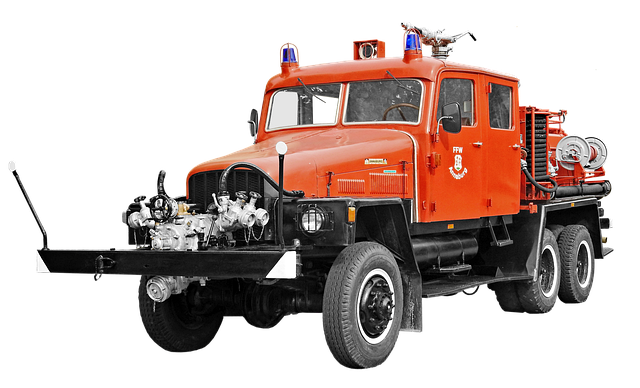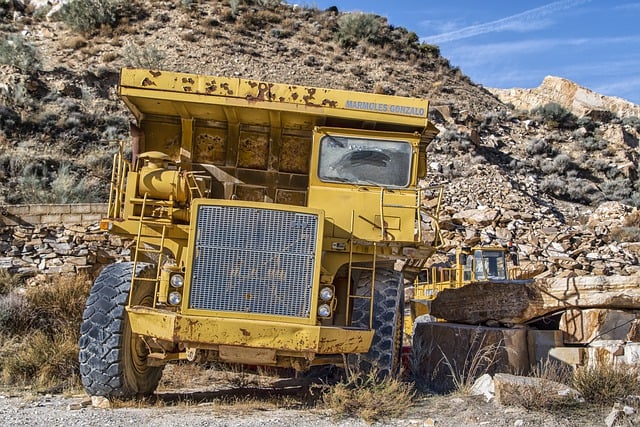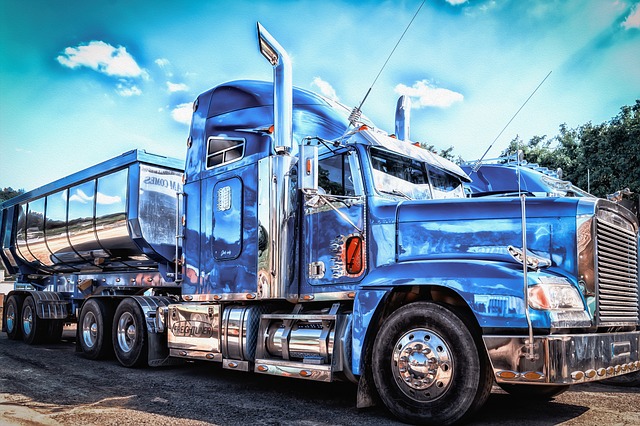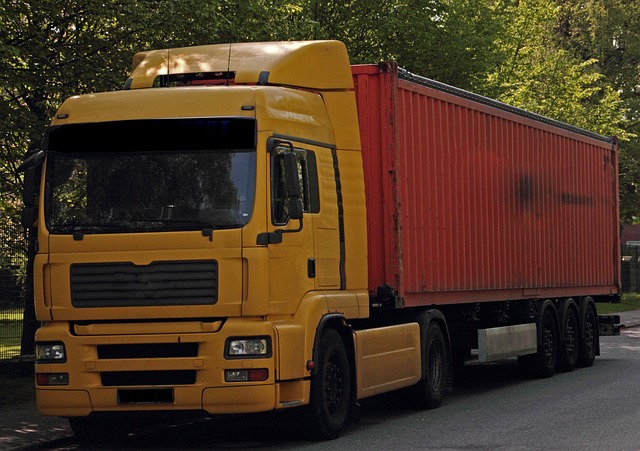The truck battery sector is undergoing a green revolution with advanced technologies like NiMH and LiFePO4 batteries leading the charge for sustainability. These eco-friendly options are free from heavy metals, offer longer service lives, and significantly reduce the environmental impact of truck operations. Solar charging solutions, paired with regenerative braking systems, further enhance the efficiency and longevity of these batteries, reducing reliance on fossil fuels and cutting carbon emissions. Post-transportation life, retired truck batteries can be repurposed into energy storage systems for backup power or grid support, contributing to a circular economy and sustainable energy practices. Innovations such as solid-state batteries and alternative materials like sodium or aluminum are poised to address the challenges faced by current lithium-ion technologies and are crucial in the transition towards decarbonizing the logistics sector, aligning with global environmental goals.
Exploring eco-friendly alternatives to conventional batteries, particularly within the heavy-duty vehicle sector, is crucial for mitigating environmental impact and promoting sustainability. This article delves into five innovative battery technologies that are reshaping the trucking industry. From the lifecycle analysis of truck batteries to advancements in materials science, we explore how each alternative contributes to a greener future. Key among these are nickel metal hydride (NiMH) and lithium-iron phosphate (LiFePO4) batteries, which offer promising sustainability metrics for heavy-duty vehicles. Additionally, the integration of solar power charging methods and the repurposing of used truck batteries into energy storage systems further highlight the transition towards eco-conscious transportation solutions. Stay tuned as we chart the trajectory of these green technologies and the exciting research and innovations on the horizon.
- Introduction to Eco-Friendly Battery Technologies
- The Lifecycle of a Truck Battery: Environmental Impact
- Lead-Acid to Li-Ion: Advancements in Truck Batteries
- Nickel Metal Hydride (NiMH) Batteries: A Sustainable Option for Heavy-Duty Vehicles
- Lithium-Iron Phosphate (LiFePO4) Batteries: Durability and Eco-Friendliness in Truck Power Systems
- The Role of Solar Power in Charging Truck Batteries Sustainably
- Second Life for Truck Batteries: Energy Storage Solutions
- Future of Truck Batteries: Research and Innovation in Eco-Friendly Tech
Introduction to Eco-Friendly Battery Technologies

Eco-friendly battery technologies are emerging as a sustainable solution to meet the growing energy storage demands, particularly in sectors like transportation and telecommunications. These innovative batteries not only reduce environmental impact but also offer a longer lifespan and safer alternatives to conventional batteries, which often contain toxic heavy metals like lead in car batteries or lithium in rechargeable ones. One notable application is within truck batteries, where the relentless energy demands of commercial vehicles necessitate both high performance and durability. The shift towards greener options in this category is crucial, given the vast carbon footprint associated with heavy-duty transportation. Eco-friendly alternatives, such as those utilizing flow battery technology, promise to break away from these environmental constraints without compromising on power output or operational efficiency, making them particularly suited for the demands of commercial vehicles. These advancements pave the way for a cleaner future in energy storage, with a significant focus on the trucking industry, where eco-friendly batteries can play a transformative role in reducing emissions and promoting sustainability.
The Lifecycle of a Truck Battery: Environmental Impact

In the lifecycle of a truck battery, from manufacturing to disposal, several environmental impacts are evident at each stage. The production process involves extracting raw materials such as lead, sulfuric acid, and plastic, which often necessitates significant energy consumption and can result in habitat disruption and pollution. These materials are then refined and combined to create the battery cells, a procedure that releases greenhouse gases into the atmosphere. Once deployed, truck batteries are subject to wear and tear over time. As they approach the end of their functional life, they become less efficient, which can lead to an increase in fuel consumption for the trucks as the battery struggles to hold a charge. Proper disposal is crucial; improperly disposed-of batteries can leak toxic substances into soil and water systems, posing risks to wildlife and human health.
The environmental footprint of truck batteries extends beyond their operational life. Recycling and recovery are critical for mitigating the negative impacts. Traditional recycling methods recover valuable metals but still produce residual waste that often ends up in landfills. Innovative eco-friendly alternatives to conventional lead-acid truck batteries, such as lithium-ion or advanced AGM (Absorbent Glass Mat) batteries, offer significant environmental benefits. These alternatives reduce the reliance on hazardous materials and decrease the overall carbon footprint throughout their lifecycle. Lithium-ion batteries, for instance, are rechargeable and have a longer service life, which translates to less frequent replacement and lower environmental impact over time. Additionally, the design of these modern batteries incorporates better materials that can be more easily recycled at the end of their life, ensuring a more sustainable solution for the power needs of trucks in various industries.
Lead-Acid to Li-Ion: Advancements in Truck Batteries

The evolution from lead-acid to lithium-ion (Li-Ion) truck batteries represents a significant leap forward in terms of performance and sustainability within the heavy-duty vehicle sector. Traditional lead-acid batteries have long been the mainstay for starting, lighting, and ignition systems in trucks, but their heavy weight, short lifespan, and environmental impact have spurred innovation. In contrast, Li-Ion truck batteries offer a substantial reduction in weight, a longer operational life, and a more environmentally friendly design. This transition not only enhances fuel efficiency due to the reduced energy required for cranking but also enables electric trucks to achieve greater ranges and performance levels. The high energy density of Li-Ion batteries aligns with the increasing demand for eco-friendly transportation solutions, making them an ideal choice for modern fleets aiming to reduce their carbon footprint. As the adoption of these advanced batteries grows, so too does the potential for significant improvements in energy efficiency and environmental impact across the trucking industry.
Nickel Metal Hydride (NiMH) Batteries: A Sustainable Option for Heavy-Duty Vehicles

When considering sustainable energy solutions for heavy-duty vehicles, such as trucks, NiMH batteries emerge as a viable and eco-friendly alternative to conventional lead-acid batteries. These batteries offer a higher energy density and are more durable under varying temperatures compared to their traditional counterparts. NiMH batteries can withstand the demands of long hours and heavy loads that trucks often face on the job, making them particularly suitable for commercial transportation applications. The advantage of using NiMH batteries in trucks lies in their ability to deliver consistent performance without the environmental concerns associated with the production and disposal of lead-acid batteries. Moreover, they are rechargeable, which not only extends their usable life but also aligns with the sustainability goals of reducing waste and conserving resources. As the transportation sector moves towards greener practices, NiMH truck batteries stand out as a key component in achieving this transition, offering a significant reduction in carbon footprint while maintaining the performance needs of heavy-duty vehicles. The adoption of NiMH technology in trucks not only supports the shift towards a more sustainable future but also positions fleet owners and operators at the forefront of innovation in eco-friendly transportation solutions.
Lithium-Iron Phosphate (LiFePO4) Batteries: Durability and Eco-Friendliness in Truck Power Systems

Lithium-Iron Phosphate (LiFePO4) batteries represent a significant leap forward in the eco-friendliness and durability of power systems for trucks, offering a sustainable alternative to conventional lead-acid batteries. These advanced batteries are designed with environmental considerations at their core, avoiding heavy metal use common in traditional truck batteries. The absence of toxic elements like cadmium, lead, and mercury makes LiFePO4 batteries more secure for disposal and less harmful to the ecosystem. Their robust construction also allows them to endure the rigorous demands of commercial transportation applications, with a longer lifespan compared to their conventional counterparts. This means fewer replacements over time, which not only reduces waste but also lowers the total cost of ownership for fleet operators. The high energy density and excellent performance in a wide range of temperatures make LiFePO4 truck batteries an ideal choice for modern, eco-conscious logistics operations looking to minimize their environmental footprint without compromising on reliability or efficiency.
The Role of Solar Power in Charging Truck Batteries Sustainably

Solar power presents a promising avenue for charging truck batteries in an eco-friendly manner. The integration of photovoltaic (PV) panels on the roofs of trucks has emerged as a prudent solution to extend the operational range of electric trucks without relying on conventional fossil fuel energy sources. These PV panels harness sunlight, converting it directly into electricity, thereby eliminating the need for external charging stations that typically rely on the power grid. This approach not only reduces greenhouse gas emissions but also decreases the truck’s overall carbon footprint. The energy harvested through solar panels can be stored in high-capacity batteries, ensuring the trucks have a sustainable power supply during transit. Additionally, solar charging technology can be paired with regenerative braking systems, which further enhance the efficiency of truck batteries by recovering energy otherwise lost as heat during braking. As the technology matures and becomes more cost-effective, the prospect of fully solar-powered trucks on the road becomes increasingly feasible, aligning with the global push towards sustainable transportation solutions. Truck battery sustainability is at the forefront of this transition, making it a critical component in the green logistics revolution.
Second Life for Truck Batteries: Energy Storage Solutions

In the realm of sustainable energy, the repurposing of truck batteries from their initial use in transportation to subsequent lives in energy storage represents a significant stride in eco-friendly practices. These heavy-duty batteries, designed to endure the rigors of vehicular demands, possess an impressive capacity that can be harnessed for stationary applications. Upon retirement from active duty in trucks, these batteries can transition into robust energy storage systems for residential or commercial use, such as powering backup systems, grid support, and even in large-scale renewable energy storage setups. The process of repurposing involves a thorough examination to ensure the batteries still hold a safe and reliable amount of charge; this refurbishing not only extends the lifecycle of the battery but also contributes to the reduction of environmental impact associated with battery disposal and manufacturing new units. This approach not only conserves natural resources but also showcases a circular economy model, where the end-of-life for one product becomes the valuable beginning for another. The potential for truck batteries in second life applications is vast, offering a renewable and cost-effective solution that aligns with the growing need for sustainable energy storage options.
Future of Truck Batteries: Research and Innovation in Eco-Friendly Tech

The trucking industry is undergoing a significant transformation as research and innovation drive the shift towards more eco-friendly technologies. At the heart of this change are advancements in battery technology specifically designed for heavy-duty vehicles. These new truck batteries promise to reduce carbon emissions significantly, which is critical given that trucks account for a substantial portion of transportation-related pollution. Lithium-ion batteries are currently at the forefront of this evolution, with their ability to store large amounts of energy making them ideal for electric or hybrid trucks. However, the challenges associated with these batteries, such as weight and thermal management, are actively being addressed by researchers who are exploring alternative chemistries. For instance, solid-state batteries are emerging as a potential game-changer, offering higher energy densities and improved safety over traditional lithium-ion cells. Additionally, there is ongoing research into the use of alternative materials like sodium or aluminum-based batteries, which could provide more sustainable and cost-effective solutions. These developments not only promise to enhance the performance of electric trucks but also to make them a viable option for long-haul transportation, contributing to the broader goal of decarbonizing the logistics sector and promoting sustainable practices within the truck battery realm.
In conclusion, the transition from conventional to eco-friendly truck batteries represents a significant stride towards sustainability in heavy-duty transportation. The advancements in battery technologies, including NiMH and LiFePO4 options, coupled with the integration of solar power for charging, offer viable alternatives that reduce environmental footprints. Furthermore, the potential for repurposing end-of-life truck batteries into energy storage systems further emphasizes the circular economy approach. As research and innovation continue to evolve in this sector, the future holds promise for even more sustainable solutions in the realm of truck power systems. Embracing these eco-friendly alternatives not only benefits the environment but also positions the industry at the forefront of a greener revolution.
